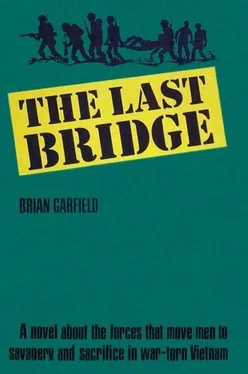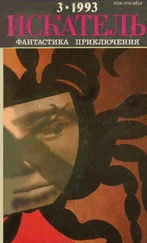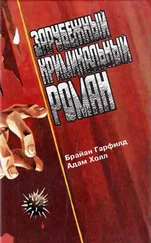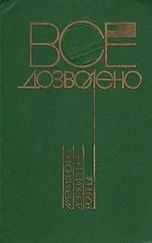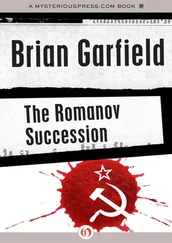“Sure you will,” Eddie Kreizler said.
Chinh’s proud eyes flashed. “Not before you.”
“Maybe. But today or tomorrow you’ll tell them anything they want to hear.”
“No. I tell nothing.”
“Sure you will,” Kreizler said again. “And so will I. I told you, Lieutenant. They know how.”
“Drugs?”
“Anything that’ll work. They’re adaptable.”
He gave Chinh time to think about that. Then he said, “You never know where loyalty ends and cowardice begins. Every man has a limit.”
After a while Chinh asked, “What must we do?”
Kreizler said, “If you can’t raise the bridge, you lower the river.”
“What?”
“They’re not getting any information out of me.”
“Then what you do?”
“When the guards come to take me out for interrogation, we jump their leader.”
“But they will shoot us. If we try that, they will kill us.” Kreizler only watched him calmly. Chinh said, “They kill us.”
“I know.”
Chapter Sixteen
0705 Hours
“What time is it?” Tyreen asked.
Saville looked at his watch. “Five after seven.”
“I don’t believe it.”
Out in the road Sergeant Khang squatted wearily, sifting dirt and pebbles. Saville said, “I don’t know about him. Maybe it was a mistake to bring him in on this. Like trying to court a bull by waving a red blanket at him.”
“He knows the country, doesn’t he?”
“So does Corporal Smith.”
“Smith’s got a wire down in him somewhere,” said Tyreen.
“I don’t know.” Saville was not a man of words. Even pencils always seemed to break in his big hands.
A fury of sweating chills shook Tyreen. Saville, whose eyes never missed much, said, “You didn’t have to take this job, David. Nobody’d care.”
“I care.”
The drizzle kept them damp and discomfited. Wind made ripples through the elephant grass, and Tyreen peered across the road, trying to pick out Nhu Van Sun’s position, but he could not see Sergeant Sun or the machine gun emplacement. That was good; he did not want to be able to see it.
Saville said, “You ought to be back in the States taking it easy.”
“That’s what General Jaynshill thinks.”
“He cut orders on you?”
“Not yet. Next week, I imagine.”
“Uh-huh,” said Saville. “That would just about break you, wouldn’t it? A desk job, I mean. That’s what’s biting you.”
“Theodore, you talk too much. Last time I checked, you were neither my mother nor my keeper.”
Tyreen’s lips pushed rhythmically out and down. He rolled over on one shoulder to stare up the road. “What’s that?”
Sergeant Hooker was behind him. “Sounds like a jeep, sir. Maybe a three-quarter-ton truck.”
“Get back to your post, Sergeant.”
Hooker disappeared, and Saville said, “Get your ass down, David,” in a very mild tone.
Tyreen flattened out. There was a chugging up the road, an unhurried gravel-crunching, and the sound of an engine changing gears. Sergeant Khang got up on his feet and faded back into the brush. Tyreen’s face was sweat-drenched and greenish. They lay in ambush along the road, waiting for an unsuspecting enemy, ready to cut the enemy to pieces — pieces of flesh, Tyreen thought, flesh and gristle, intestines and blood, cracked bones and ripsawed organs and severed joints like butchers’ meat cuts. The mind must lock out the knowledge that enemy soldiers were men.
Tyreen said, “Wait and see if it’s a truck. Let it go by if it’s not big enough to carry the six of us.”
He cleared his submachine gun. His attention narrowed down like a cone on the far bend of the road. The ugly square snout of a truck lunged around into view. “Deuce and a half,” said Saville. “Almost too damned big. Wonder what they’re carrying?”
The truck came grinding up the road, smashing the silence to pieces. Tyreen butted the weapon to his shoulder and laid his cheek along the stock, and then lowered it and ducked his head out of view. He spoke over his shoulder in a calm voice:
“Sergeant Khang.”
“Gung ho, Colonel,” said the Vietnamese. Over the rumbling of the truck Tyreen heard Khang’s boots tramp out onto the road surface. Tyreen slid back and edged his eyes over the breastwork. Saville said, “Two soldiers in the cab.”
The truck was painted battle gray. Its coarse-mesh grille looked like bared teeth. Tires chewed up the road, and the gears shifted down loudly. A hundred feet away, the truck slowed, and a Vietminh soldier in a flat helmet stepped out on the running board with his rifle lifted in one hand. Sergeant Khang stood out in the middle of the road in his undershirt, weaponless, waving the truck down. It stopped with a dusty squeak, and the driver leaned out. Khang started talking loudly in Vietnamese. Tyreen watched the driver’s face. The second soldier got down and walked ahead ten feet to stand in front of Khang and wave the rifle at him. Khang was talking rapidly, using his hands. The soldier shook his head with exasperation and turned around and yelled at the driver; the driver climbed out of his cab, lugging a Chinese machine pistol.
That was when a hand reached out of the truck bed and pushed back the tarpulin flap. A booted leg appeared. Saville murmured in Tyreen’s ear: “Troop carrier. We’re in the soup, David. God knows how many men in there.”
The PANVN soldier climbed out of the back of the truck — a captain, by his insignia. He looked around the tail edge and said irritably, “ Cha di mo? Sao! ”
The driver said, “ Om dau, Dai-uy .”
“ Di di ” the captain snapped. He marched forward and grabbed the driver by the shoulder and propelled him back toward the truck. “ Di di. ” The captain strode on toward Khang.
“Time to bail him out,” Tyreen murmured, and stood bolt upright, locking his submachine gun down toward the PANVN captain. Tyreen said, “ Dai-uy! ”
Saville stood up beside him and trained his gun on the truck. The driver stood frozen with his hand on the windshield.
The captain wheeled away from Khang. When his glance found Tyreen, his body became totally still. Tyreen spoke in Vietnamese: “Tell your men to surrender.”
For a long instant of time, the captain’s eyes bored into Tyreen’s across the thirty feet of ground separating them. Sergeant Khang turned and walked off the road into the elephant grass. A moment later there was a loud clack as Khang fed a round into the chamber of his submachine gun. The North Vietnamese captain had not spoken or stirred.
“Now!” Tyreen said.
The captain’s head revolved slowly from right to left and then, abruptly, he barked a swift command and launched himself in a swift dive away from the road.
The submachine gun bucked like a jackhammer in Tyreen’s fists. It sewed a ragged stitch of bullets across the captain’s combat jacket. The captain collapsed on the far edge of the road, and the helmeted soldier, trying to bring his rifle to bear, dropped like a plumb stone under the attack of Sergeant Khang’s weapon. Theodore Saville’s gun rattled like an electric typewriter. The driver pitched away from the truck cab, and Saville laced a neat line of holes low along the tarpaulin that covered the truck bed. There was a lot of shouting inside the truck. A large hole appeared in the tarp, smoking around its edges: someone inside was shooting blindly. Three men leaped from the tailgate with rifles, and one of them went down, shot, before he had a chance to use his weapon. The other two dived for the far side of the road, and Tyreen heard the slow thudding of a 7.62 submachine gun, probably Corporal Smith’s. Tyreen turned to add his own fire to Saville’s, raking back and forth the length of the truck bed, and over the deafening pound of it Tyreen heard Saville’s angry roar.
Читать дальше
